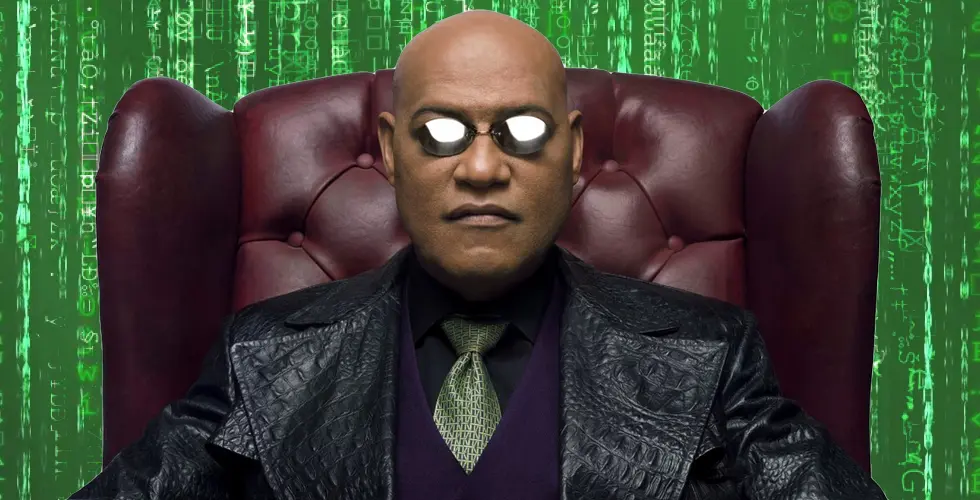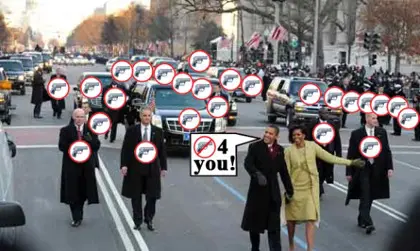

Whenever there’s a school shooting, the answer from the political left is always the same: take the guns away from citizens and give them all to Donald Trump. It’s a puzzle, indeed—just as the answer to sexism and racism is to put Trump (of all people) in charge of it, which is what anti-discrimination legislation does. We somehow forget that “the government” and “the legislature” are the people occupying the White House and Congress. There’s nothing else ‘there.’ There is no magical machine in the sky that flawlessly enforces laws and brings to pass a utopian state of affairs. There is no algorithm that enacts consensual propositions printed on paper. The government = sinful, selfish people who have power. That’s all there is to it.

Well, actually there is more to it—at least according to some of the most accomplished intellectuals of our age:
Government is an agency of legitimized coercion. The special characteristic that distinguishes governments from other agencies of coercion (such as ordinary criminal gangs) is that most people accept government coercion as normal and proper. The same act that is regarded as coercive when done by a private individual seems legitimate if done by an agent of the government. – David D. Friedman. Economist, theoretical physicist, and Professor of Law at Santa Clara University.
The nation-state…is a set of institutional forms of governance maintaining an administrative monopoly over a territory with demarcated boundaries (borders), its rule being sanctioned by law and direct control of the means of internal and external violence. – Anthony Giddens. British sociologist who taught at both Cambridge and the London School of Economics, and who is the fifth most-cited humanities scholar in the world.
…we have to say that a state is a human community that (successfully) claims the monopoly of the legitimate use of physical force within a given territory. Note that ‘territory’ is one of the characteristics of the state. Specifically, at the present time, the right to use physical force is ascribed to other institutions or to individuals only to the extent to which the state permits it. The state is considered the sole source of the ‘right’ to use violence. Hence, ‘politics’ for us means striving to share power or striving to influence the distribution of power, either among states or among groups within a state. – Max Weber. Jurist, political economist, and widely considered as a founder of the field of sociology.
[The state is] that organization in society which attempts to maintain a monopoly of the use of force and violence in a given territorial area; in particular, it is the only organization in society that obtains its revenue not by voluntary contribution or payment for services rendered but by coercion. – Murray Rothbard. Leading Austrian economist and a founder of 20th century libertarianism who also served as endowed Professor at the University of Nevada, Las Vegas.
…government as we know it for the past several thousand years [is] a monopoly operating ultimately by threat or actual use of violence, making rules for and extracting tribute from the residents of the territory it controls. – Robert Higgs. Economic historian and a leading libertarian scholar.
The State, completely in its genesis, essentially and almost completely during the first stages of its existence, is a social institution, forced by a victorious group of men on a defeated group, with the sole purpose of regulating the dominion of the victorious group over the vanquished, and securing itself against revolt from within and attacks from abroad. Ideologically, this dominion had no other purpose than the economic exploitation of the vanquished by the victors. – Franz Oppenheimer. Sociologist, political economist, and Germany’s first Chair of Sociology.
The Nation is nothing at all but simple force. Not in a single Nation are the people of one race, one history, one culture, nor the same political opinion or religious faith. They are simply human beings of all kinds, penned inside frontiers which mean nothing whatever but military force. – Rose Wilder. American journalist, novelist, and political theorist.
Government then is solely an instrument or mechanism of appropriation, prohibition, compulsion, and extinction. – Isabel Paterson. Canadian novelist and political theorist.
Empires [governments] employ a proprietary theory whereby ruling elites claim a material share of all things: land, production, traded goods, and labor. The payment (often in kind) of taxes, tributes, rents, and forced labor by peasants to local and foreign elites ensures a continual source of wealth. – Warren Carter. Leading scholar on the Roman Empire and Professor of New Testament at Brite Divinity School, writing about “taxation” in a leading reference work.
The functions of governments are to act as a mechanism to take wealth from some and transfer it to others, and to discriminate among groups on the basis of their relative power in order to determine who gains and who loses. – Bruce L. Benson. Professor and Chair of Economics at Florida State University.
Very much like terrorists…bandits challenge the state’s monopoly on certain types of violence. A state is a robber-band that has been recognized as legitimate by other states; a robber-band is an unrecognized state or one that operates within territory claimed by another state. Just like legitimate states, the popularity and policies of bandits are variable. – William Arnal. Biblical scholar and Professor at the University of Regina, writing about “banditry” in a leading reference work.
Despite the wide range of context and authorship, these summaries all generally agree: the nation-state (including the federal government, in America’s case) is a geographically-delineated monopoly on aggression. Governments may provide bathrooms, roads, and other things that people use and enjoy, but that is not what makes a government a government. The government’s proprietary function is maintaining a territorial monopoly on violence. It is the only group that, by default, makes offers for goods and services that can’t be turned down. Exchange with the government is involuntary instead of voluntary.
Once one realizes this, it’s obvious why government monopoly is the most dangerous monopoly of all.
Articles posted on LCI represent a broad range of views from authors who identify as both Christian and libertarian. Of course, not everyone will agree with every article, and not every article represents an official position from LCI. Please direct any inquiries regarding the specifics of the article to the author.
Did you read this in a non-English version? We would be grateful for your feedback on our auto-translation software.
), //libertarianchristians.com/wp-content/plugins/smartquizbuilder/includes/images/template6-latest.jpeg))

), https://libertarianchristians.com/wp-content/plugins/smartquizbuilder/includes/images/template6-latest.jpeg))








































), https://libertarianchristians.com/wp-content/plugins/smartquizbuilder/includes/images/template6-latest.jpeg))
), https://libertarianchristians.com/wp-content/plugins/smartquizbuilder/includes/images/template6-latest.jpeg))
), https://libertarianchristians.com/wp-content/plugins/smartquizbuilder/includes/images/template6-latest.jpeg))





*by signing up, you also agree to get weekly updates to our newsletter
Sign up and receive updates any day we publish a new article or podcast episode!